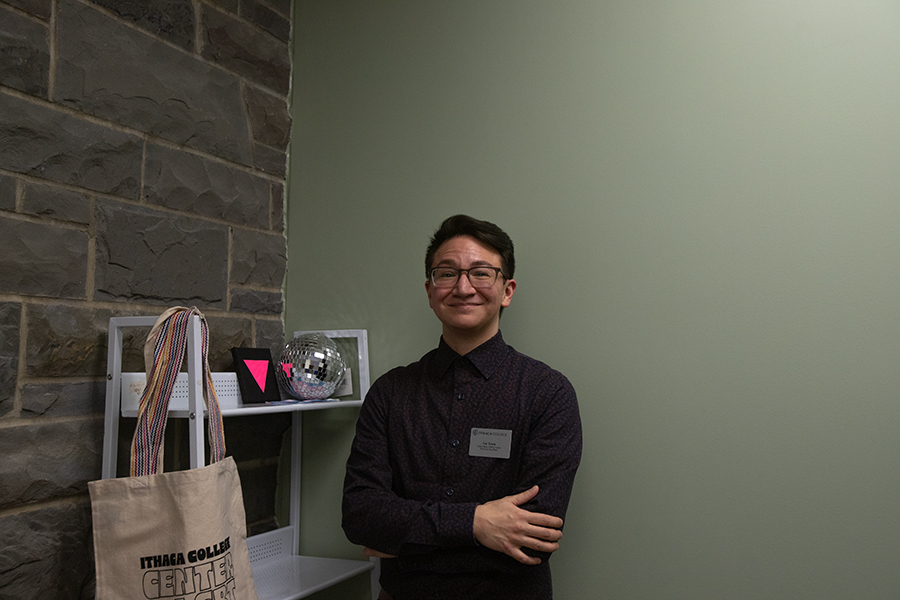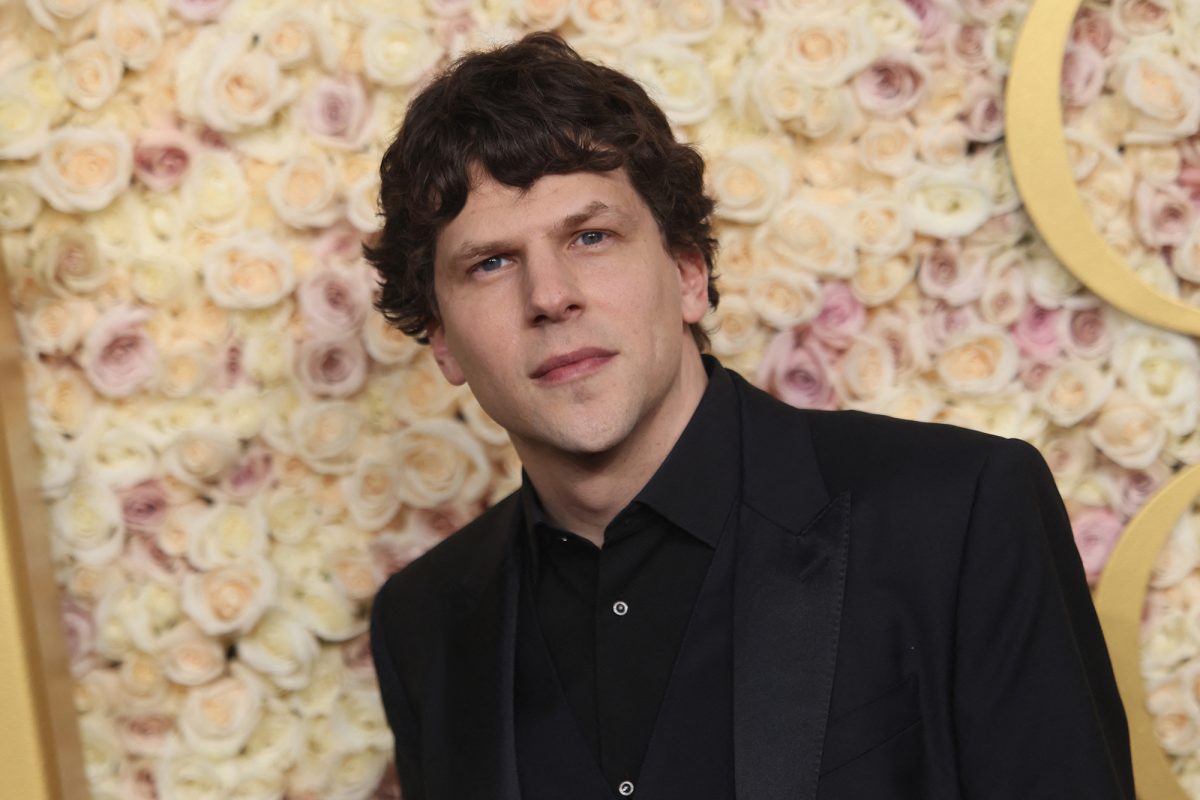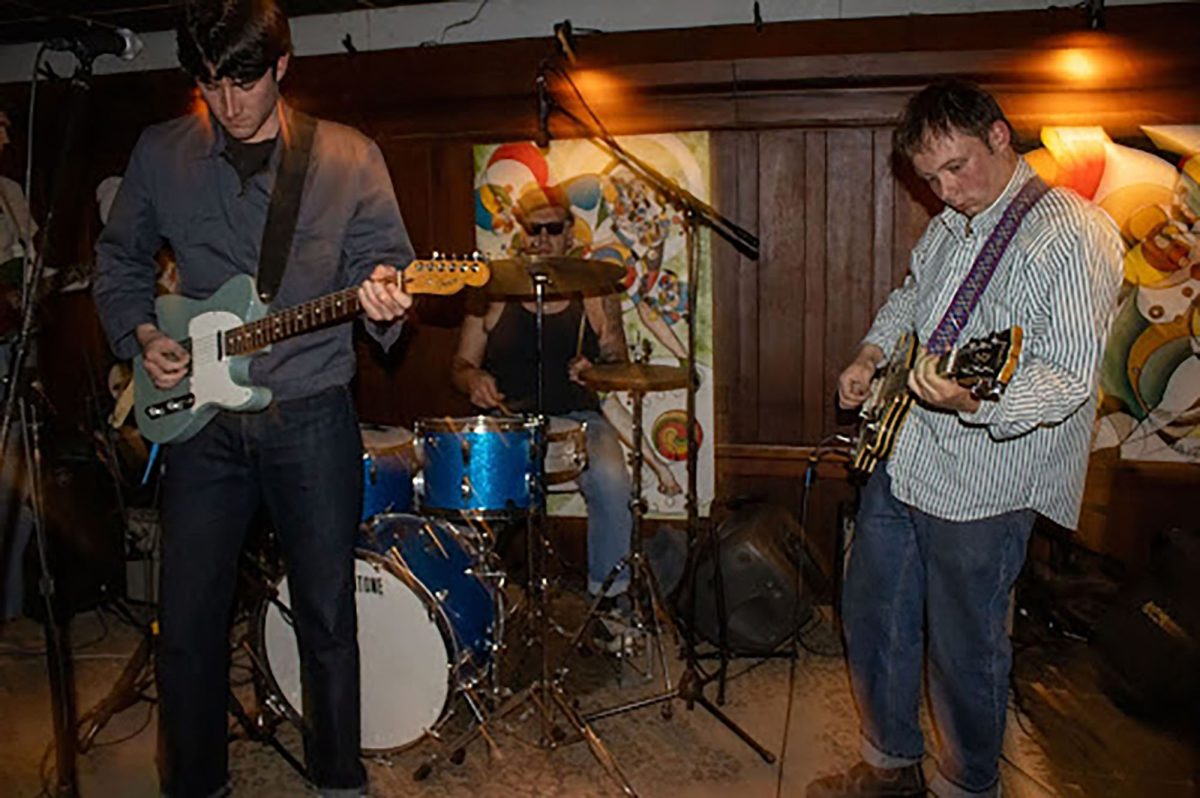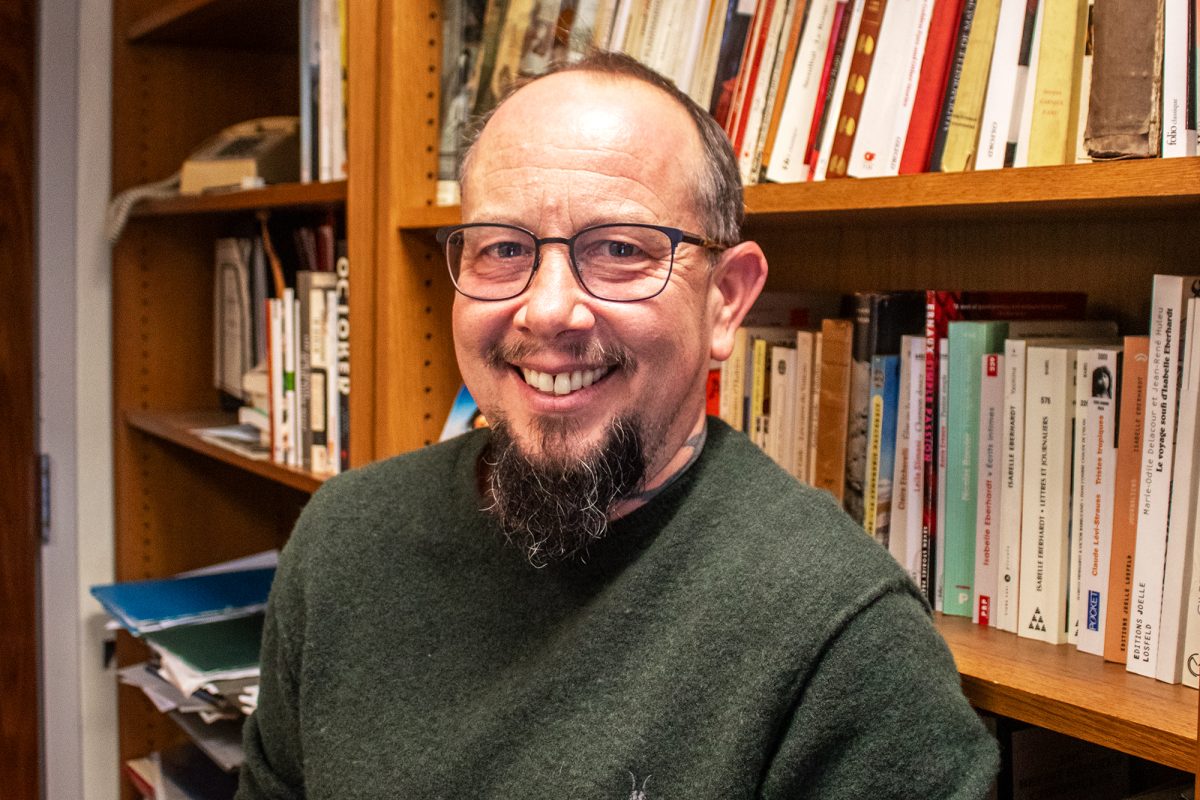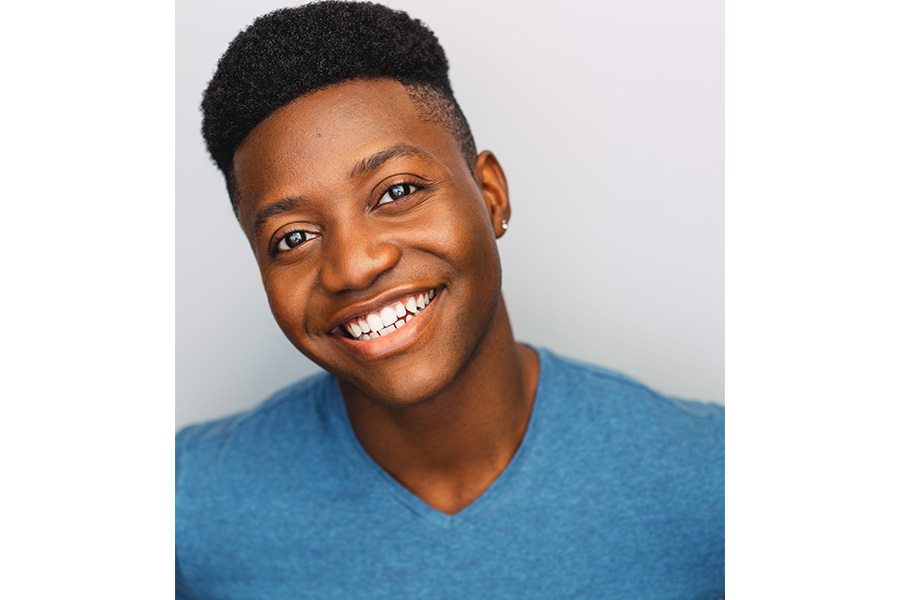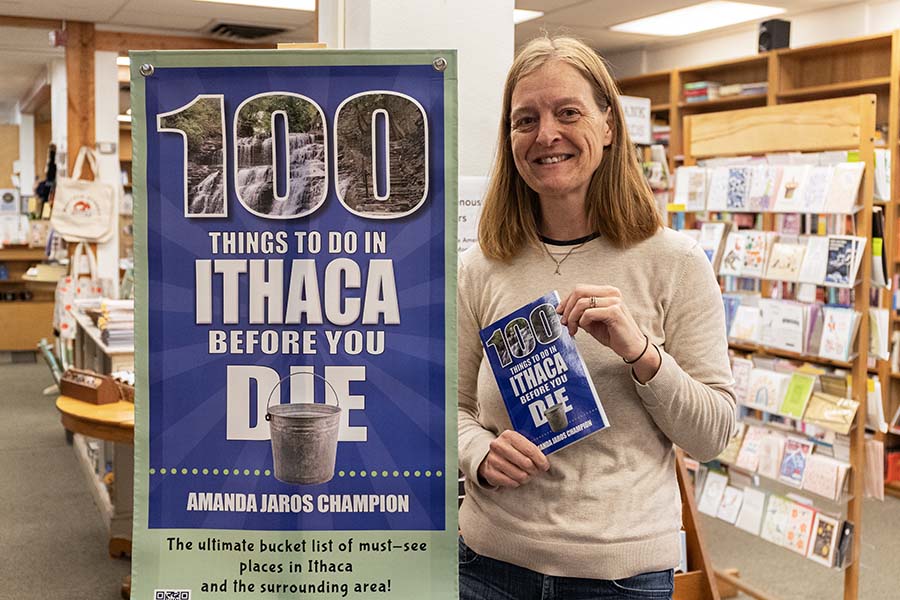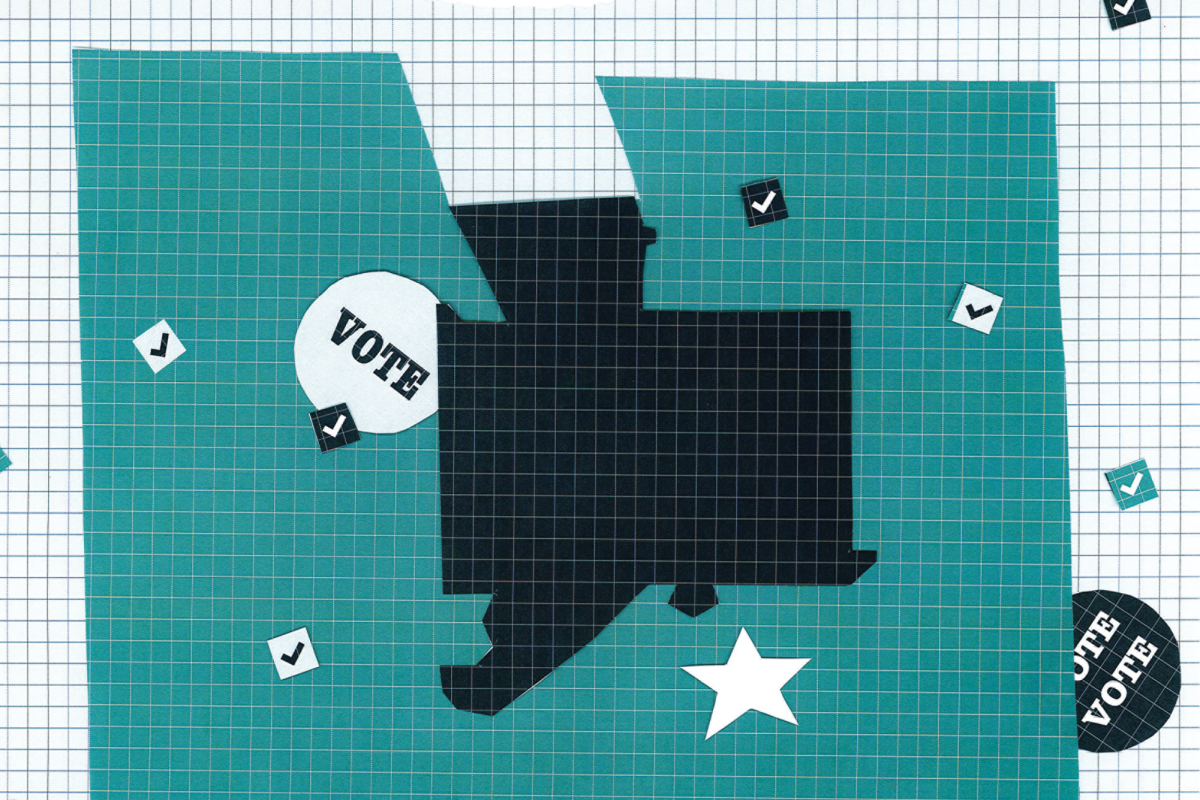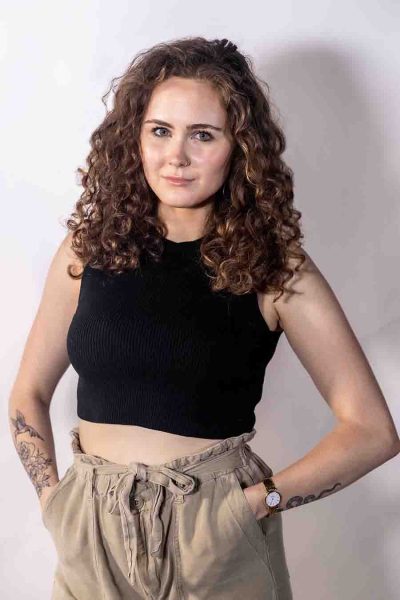Lee Tyson began their role as Pride Fellow for The Center for LGBT Education, Outreach, and Services at Ithaca College on Jan. 16, 2024. Prior to this role, Tyson completed a postdoctoral fellowship at Case Western Reserve University in Cleveland. Before the postdoctoral fellowship, Tyson received a Ph.D. in musicology and LGBT studies at Cornell University, where Tyson then taught as a visiting lecturer.
The Ithaca College Pride Fellowship started in Fall 2022 as a two-year, fixed term, paid fellowship. Designed to aid the fellow in their research and practice of diversity, equity and inclusion programming, the position provides early career experience in leadership, campus resources and student affairs.
The fellow’s responsibilities include teaching and facilitating learning about the LGBTQ+ community, inviting and connecting participants to events and learning opportunities, and facilitating meetings with students and groups of students to discuss social issues and formulate a plan of action from these discussions.
Staff writer Grace Condon spoke with Tyson about their perspectives on leadership, the transition from being a student to a mentor and plans for student connection during the fellowship.
This interview has been edited for length and clarity.
Grace Condon: How have your prior experiences in Cleveland shaped your perspective on leadership, especially as it pertains to leading community building initiatives in the transgender and queer communities?
Lee Tyson: My most recent position was as a postdoctoral fellow at Case Western Reserve University in the HILLS program, which is Humanities in Leadership Learning Series. This program was designed for academics who are looking to get insight into higher education administration, especially when it comes to diversity and equity efforts. I gained a lot of insights in general into how institutions work, what kind of strategic thinking happens at these upper levels of administration and how folks might bridge the gap between … working with students and the larger strategic thinking around diversity efforts. So a lot of that has informed my shift from an academic path into student services. After finishing my PhD at Cornell [University] in 2021, I spent a year teaching writing [at Cornell] and then did [a] postdoc [at Case Western Reserve University]. … The postdoc gave me the opportunity to think more broad-scale about how higher education institutions can serve their students best and those are some of the insights that I’ll be bringing to this role.
GC: What made you want to come back to Ithaca and take the fellowship?
LT: This is a return to Ithaca for me. I was here in Ithaca for nine years, as a PhD student … and then teaching. I’m really excited to return. A lot of that is because of this role. The Pride Fellowship is a unique opportunity to get some really tailored experience in LGBTQ+ student services. I think that’s rooted in Ithaca College’s reputation of being the forefront of serving and supporting LGBTQ+ students. So that’s a big part of why I’m back in Ithaca, but also, I’m really excited to reconnect with this unique community. I’m really excited to visit the Alley Cat Cafe. And I’m especially excited about Ithaca’s new Ithaca Pride Alliance, which is a new organization supporting LGBTQ+ community building in and around Ithaca, which our director Crissi Dalfonzo is one of the founders of.
GC: What do you bring to the fellowship as an advocate for those within your community and as someone who was once a student?
LT: [Having been a student is] one of the main experiences that I’m drawing on. Coming from my engagement with LGBTQ+ advocacy in high school, when I was the president of our Gay Straight Alliance [in high school]. In college, I was on the board of our Queer Student Organization; in graduate school, I was a peer educator on topics of gender and sexuality, and [I had] a recent role as co-chair of an organization supporting LGBTQ+ academics. And through all those positions, I’ve learned that relationship building and communication are key and understanding that individuals know themselves best and communities know what they need. So in this position, I’m really committed to learning from students, knowing that they know what they need … [and] building those relationships and then understanding what I can do to help get those needs met.
GC: How will you touch base with the queer and trans community at Ithaca College? What kinds of programming and events are you planning?
LT: Since I’m new to this position, a lot of the programming for the semester has already been set. So I’m working in a support capacity there and strategizing for a longer term. But right now, in just my first few weeks, I’ve loved getting to know the students. I’m getting a chance to chat with … almost everybody who comes through our doors. I’m spending more time with our student staff here in the center, just getting to know what brings them to the center, what they are hoping to connect with here [and] what they need from us and how we can expand our offerings to get those needs met.
GC: How will you go about facilitating student engagement? Are there any events in the works that you’re looking forward to?
LT: So many awesome things. I’m particularly excited for our Pride Prom in March. That is going to be a fun way to connect with a greater section of our campus community. I’ve been to various pride prom-like events in the past and hosted some myself. It’s always exciting energy to just find time for joy in our community to have some fun and really connect over some more social events.
GC: How does intersectionality play a role in student experiences of academic programs and whether or not they reap the full benefits of campus resources?
LT: [I] think [of intersectionality] as students’ multiple and intersecting identities and how they feel most comfortable to bring their full selves to any given space on campus. Certainly to the center, but to their classrooms, to their social lives, to any other work that they’re doing. How can we be sure that our campus community is inclusive, but specifically attentive to possibilities for solidarity across marginalized experiences, working together toward collective liberation? Every individual and community’s needs might be shifting. So part of my goal is to be sure to connect with students and student groups across campus who want to share their positionalities and … [ask], how can we as a center make our spaces and programming most accessible to you?


